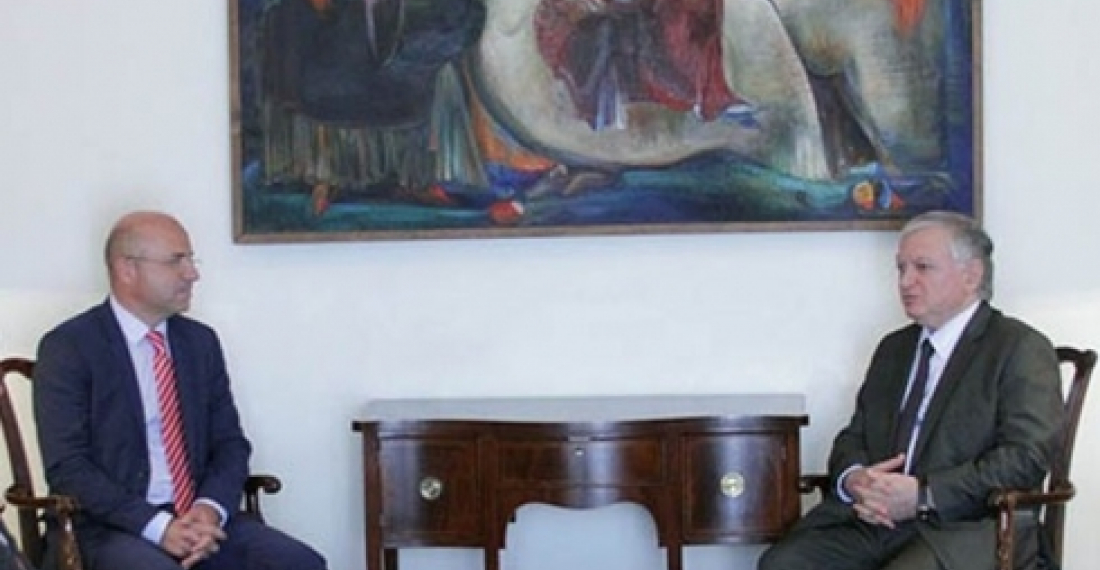The Foreign Minister of Armenia, Edward Nalbandian, on Thursday (17 September) received at his office in Yerevan the Head of the OSCE Conflict Prevention Centre, Marcel Pesko, and his delegation. According to a press statement issued by the Armenian Foreign Ministry, during the meeting Edward Nalbandian and Marcel Peṧko discussed several questions related to the conflict prevention in the OSCE region.The Foreign Minister presented the recent developments on the Nagorno-Karabakh issue stressing that Armenia is committed to an exclusively peaceful settlement of the conflict through the OSCE Minsk Group Co-Chairs mediation.
The OSCE Conflict Prevention Centre monitors the security situation in the OSCE area and prepares contingency plans for peacekeeping initiatives. In case of a breakthrough in the negotiations on the Karabakh conflict it is expected that the Centre will have an important role in ensuring the compliance of whatever is agreed. It is expected that Nalbandian will meet his Azerbaijani counterpart in New York next week.
Speaking in London last week, Foreign Minister Nalbandian accused Azerbaijan of jeopardising the peace negotiations. He told an audience at Chatham House that Armenia continues to make efforts together with the mediators – the OSCE Minsk Group Co-Chair countries - United States, Russia and France, to reach an exclusively peaceful solution to this conflict.He added,
"The Co-Chairs have a common approach on the fundamental principles of the Nagorno-Karabakh conflict settlement. This is a rare example in the current turmoil in the international relations when those countries adhere to the same approach. We forthrightly stand by the position of the international community that negotiations, compromises and preparation of our societies to peace have no alternative for the conflict resolution.
The Co-Chair countries have outlined their proposals on numerous occasions, most notably in five statements of the presidents of France, USA and Russia made since 2009. Those proposals are better known as Basic Principles of the Nagorno-Karabakh conflict resolution and are consisted of three principles of international law: non-use of force or threat of force, peoples right to self-determination and territorial integrity. The Co-Chair’s proposal gives a full credit to the right of people of Nagorno-Karabakh to determine their future status through legally binding expression of will. Armenia has expressed its commitment to move forward based on those proposals.
The reason that a breakthrough in the peace talks has not been achieved is the rejection of Azerbaijan of the proposals of the Co-Chair countries.
Continuous cease-fire violations by Baku along the border with Armenia and on the line of contact with Nagorno-Karabakh once again prove that Azerbaijan continues to jeopardize the conflict resolution process, the efforts of the OSCE Minsk Group Co-Chairs aimed at the peaceful settlement of the issue and undermining the upcoming meetings initiated by the mediators."
You can read the full speech on the website of the Armenian Foreign Ministry, here
source: commonspace.eu with the press service of the Foreign Ministry of Armenia
photo: Armenian Foreign Minister Nalbandian with the Director of the OSCE Conflict Prevention Centre in Yerevan on 17 September 2015. (Picture courtesy of the Ministry of Foreign Affairs of Armenia).







